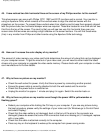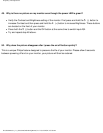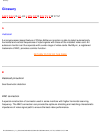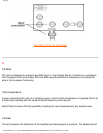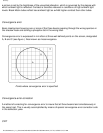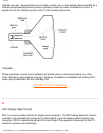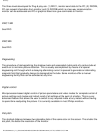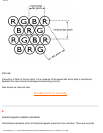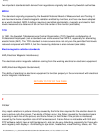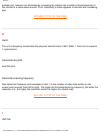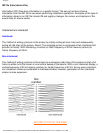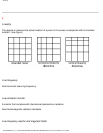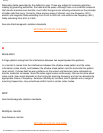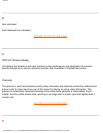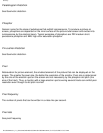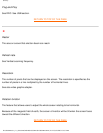
Glossary
two important standards both derived from regulations originally laid down by Swedish authorities.
MPR-II
The standard originally proposed by the Swedish National Board of Measurement and Testing. It
set maximum levels of electromagnetic radiation emitted by monitors, and has now been adopted
as a world standard. MPR-II defines maximum permitted electrostatic, magnetic and electric field
levels measured at a distance of 50 cm from the center of the monitor (see table).
TCO
In 1991, the Swedish Tjänstemannens Central Organization (TCO, Swedish confederation of
Professional Employees ) set a standard even more severe than MPR-II, especially for alternating
electric fields (AEF). The TCO standard is more severe since not only are the permitted field levels
reduced compared with MPR-II, but the measuring distance is also reduced (see table).
Electromagnetic radiation standards
EMI (Electrical Magnetic Interference)
The electrical and/or magnetic radiation coming from the working electrical or electronic equipment.
EMS (Electrical Magnetic Sustainment)
The ability of electrical or electronic equipment to function properly in the environment with electrical
and/or magnetic interference.
RETURN TO TOP OF THE PAGE
F
Flicker
Very rapid variations in picture intensity caused by the finite time required for the electron beam to
scan a picture onto the screen. Two kinds of flicker occur: line flicker caused by the electron beam
scanning-in each line of the picture; and frame flicker (or field flicker if the picture is interlaced)
caused by the frame repetition rate of 50 frames/second. Frame flicker is noticeable with GUI and
DTP software (which have a light background), and can be very disturbing, especially for those who
work regularly with displays - contributing to eye strain, headaches, visual blurring, stress, etc. The
file:///D|/EDFU/crt_17_5/edoc/ENGLISH/GLOSSARY/GLOSSARY.HTM (7 of 22)7/15/2004 3:43:31 PM



